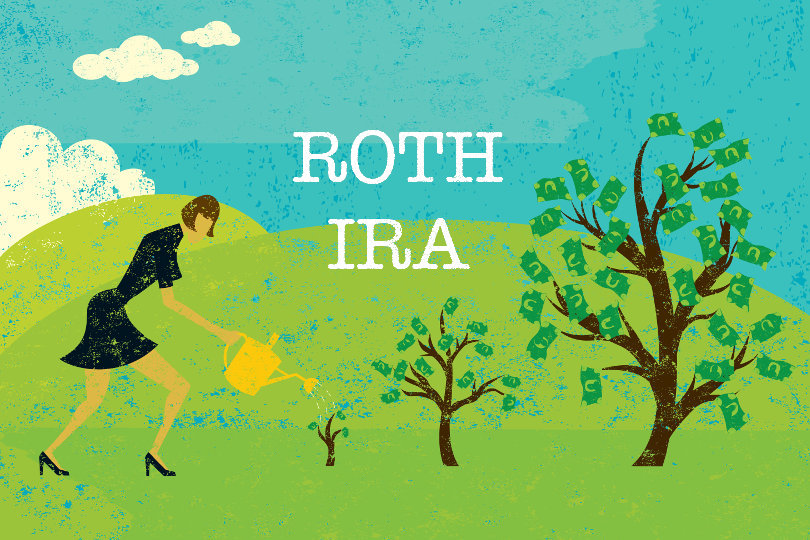For nearly everyone, the Roth IRA is the ideal place to start the journey to building a retirement fund. While most people have heard of them, they are still a bit misunderstood. That could mostly be because many people find it difficult to even begin investing due to the complexity.
However, just know that if you are still a bit unsure about the idea of opening a Roth IRA, you’re not alone. This article will provide you with foundational knowledge to have an educated conversation with your financial advisor as to whether a Roth IRA is right for you.

Roth IRA – What Is It?
A Roth IRA is a type of tax-advantaged retirement account that anyone in the U.S. can open who meets a few minimum requirements, which we’ll get into later. The Roth IRA allows one to deposit money regularly, or all at once, up to certain annual maximum limits.
Most major investment firms offer investors the option to open a Roth IRA, and the funds you deposit would be held separately from your regular brokerage funds, if any. This is because of the tax advantages offered to Roth IRA funds.
The most important benefit of a Roth IRA is that all profits enjoyed over the life of the account are tax exempt.
Requirements to Open a Roth IRA
The Roth IRA was created in 1997 as a way for middle-income Americans to enjoy some tax benefits not afforded to those of wealthier status. The first requirement to open a Roth IRA is that your income falls below certain maximum limits. For single filers, your gross income should be below $140,000, and for married filers, your gross income should fall below $208,000.1
It’s important to note that there is a bit of a workaround to these income limits. While the standard requirements are fairly straightforward, you should consider consulting with a financial advisor and perhaps a tax professional as well. You might be able to contribute to a Roth IRA account if you make more than the incomes limits via “backdoor” Roth IRA contributions.
Another requirement to open a Roth IRA is that you have what is known as “earned income.” This means that you earned taxable compensation for work performed which can be reported on a W2, 1099, or other similar IRS form for income.

Benefits of a Roth IRA
As we mentioned earlier, the most important benefit to a Roth IRA is the tax-exempt status of the returns on your investments.
Another little-known benefit of a Roth IRA is that it can act as an emergency fund. A 401(k), for example, comes with restrictions to almost all withdrawals. While you can technically withdraw funds from a 401(k), these distributions could – and most likely will – be subject to heavy tax penalties for early withdrawal.
In the case of the Roth IRA, you can withdraw all funds you’ve deposited, also known as principle, without any penalties. While you can withdraw principal investments at any time, any withdrawal of profits prior to age 59 ½ will generally be subject to heavy tax penalties like those of early withdrawal from a 401(k) or Traditional IRA.
Drawbacks of a Roth IRA
Returning to the 401(k) example, the maximum contribution limit for 2021 is $19,500.2 This brings us to the major drawback of the Roth IRA, which is that the maximum contribution per year is $6,000 for those below age 50. Those older than 50 are able to contribute up to $7,000 per year.
Consider maximizing both your company-sponsored retirement plan contribution and the Roth IRA contribution if you have the means.
What’s Next: What You Should Know About Roth IRAs
The Roth IRA is often said to be funded by “after-tax” income. This means that all money that goes into a Roth IRA has already been taxed via your regular income tax rate. While there are a few requirements you must meet prior to opening a Roth IRA, they are available to nearly anyone who can show earned income, and they have many tax advantages that, over time, could provide enormous benefits to those building up their retirement accounts.
If you still have more questions about Roth IRA contributions, check out this article from Pittsburgh financial advisors, Fragasso Financial Advisors, for some more insights. You should always consult with a financial and tax professional before making any decisions.
Investment Advice offered by Investment Advisor Representatives through Fragasso Financial Advisors, a registered investment advisor.







